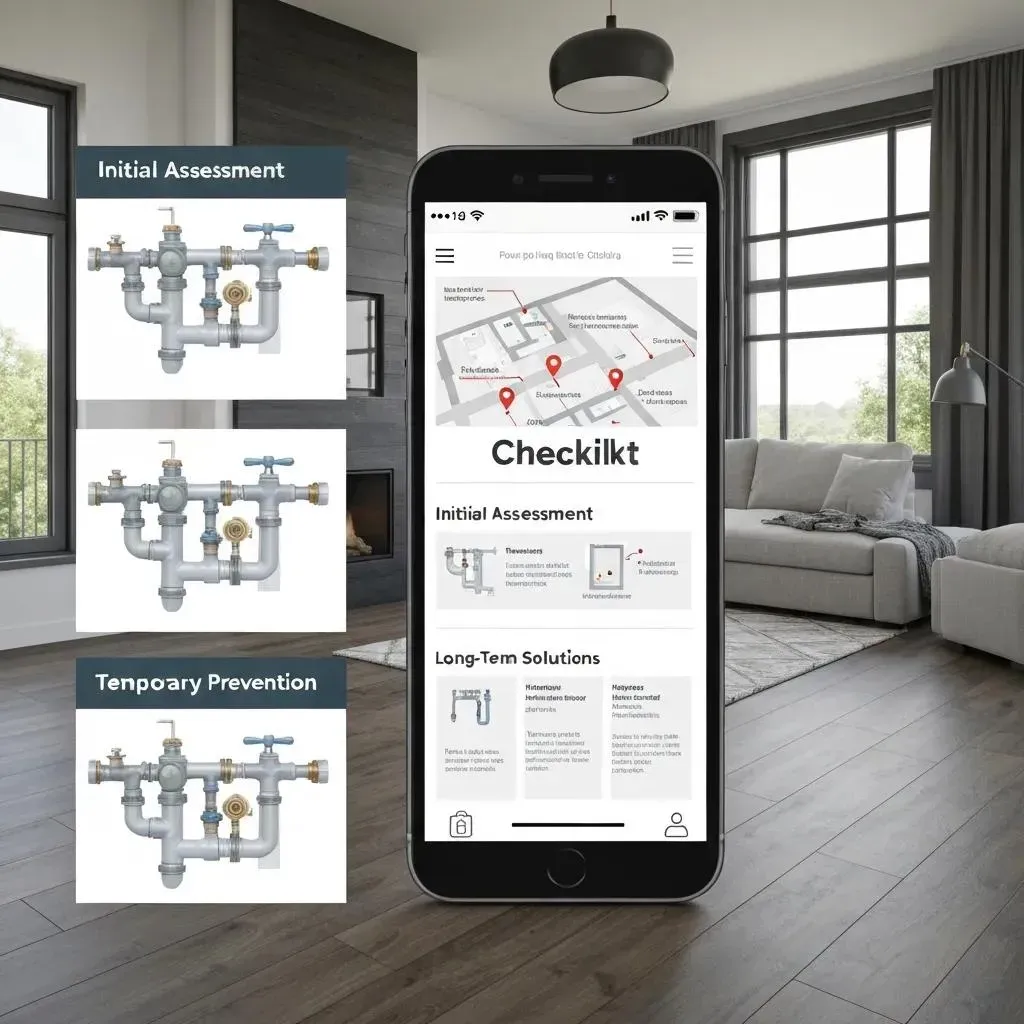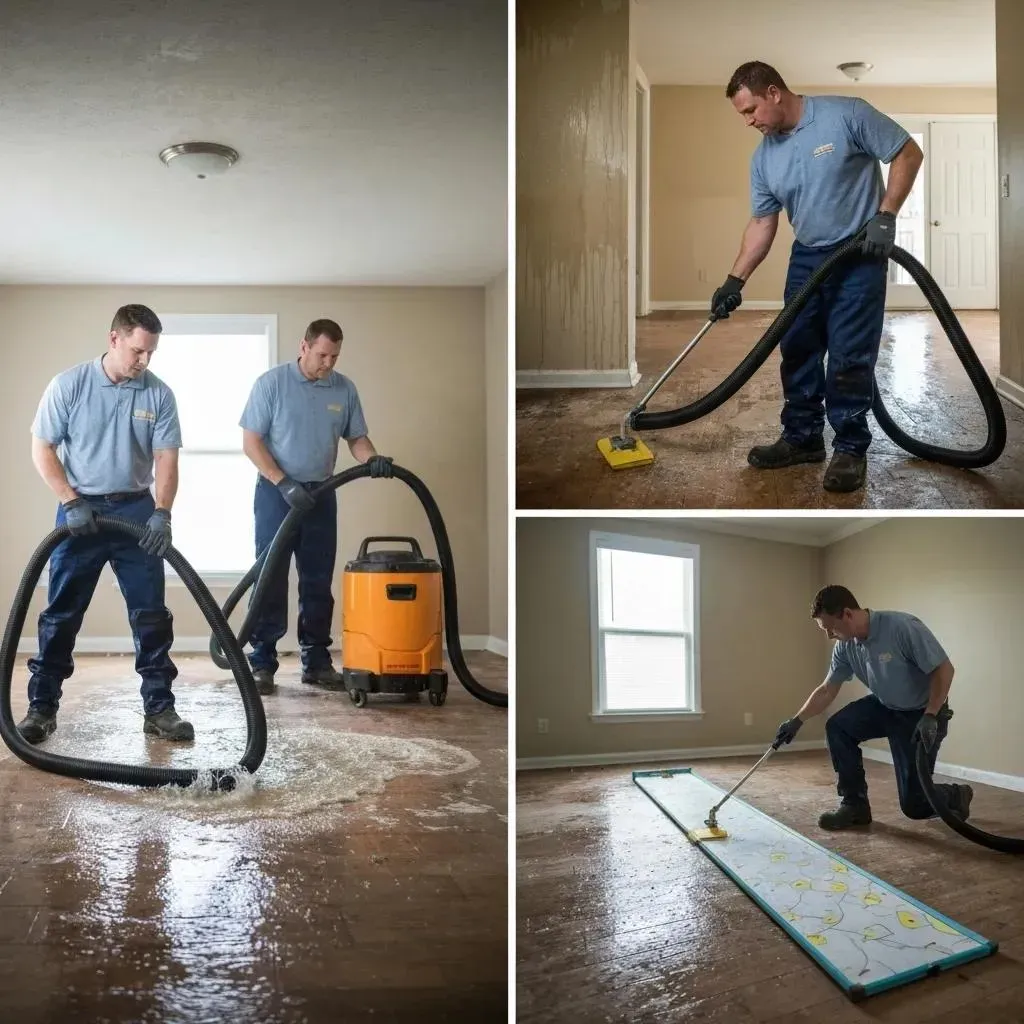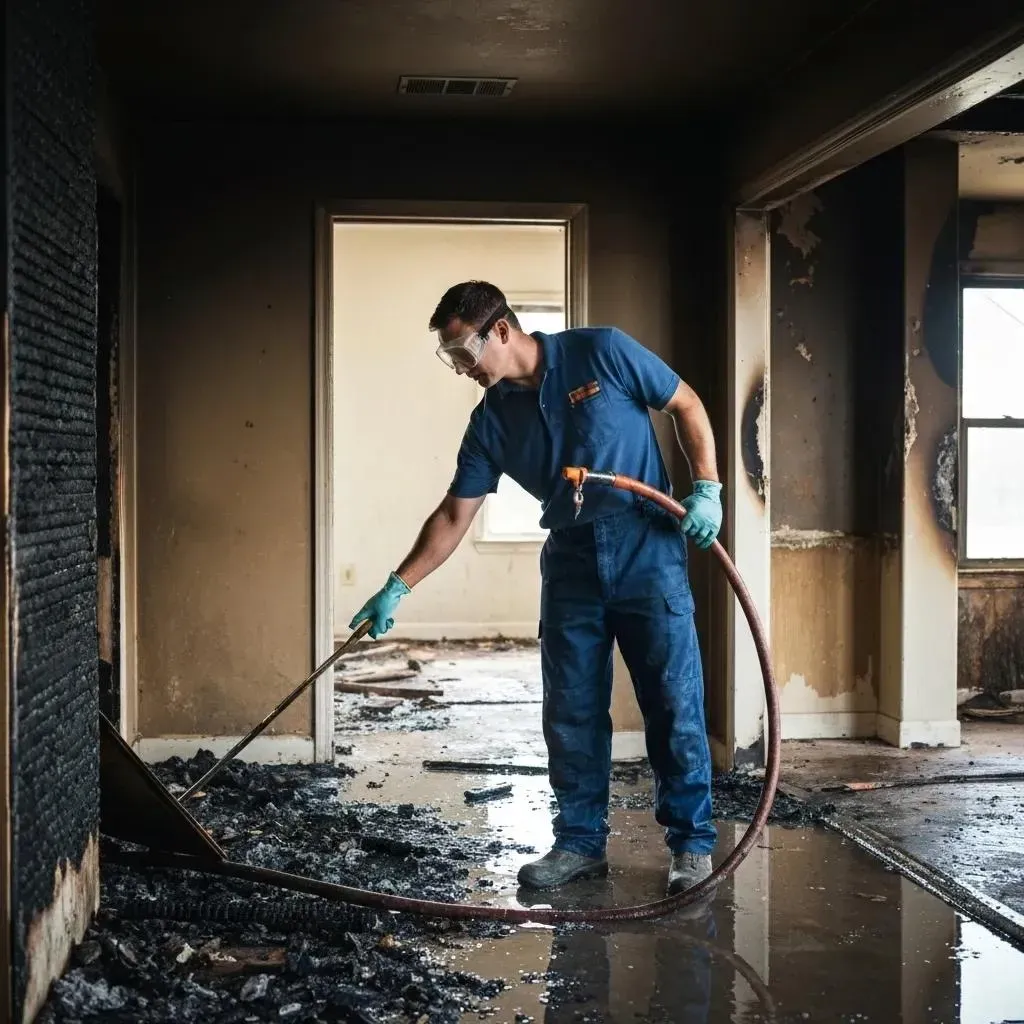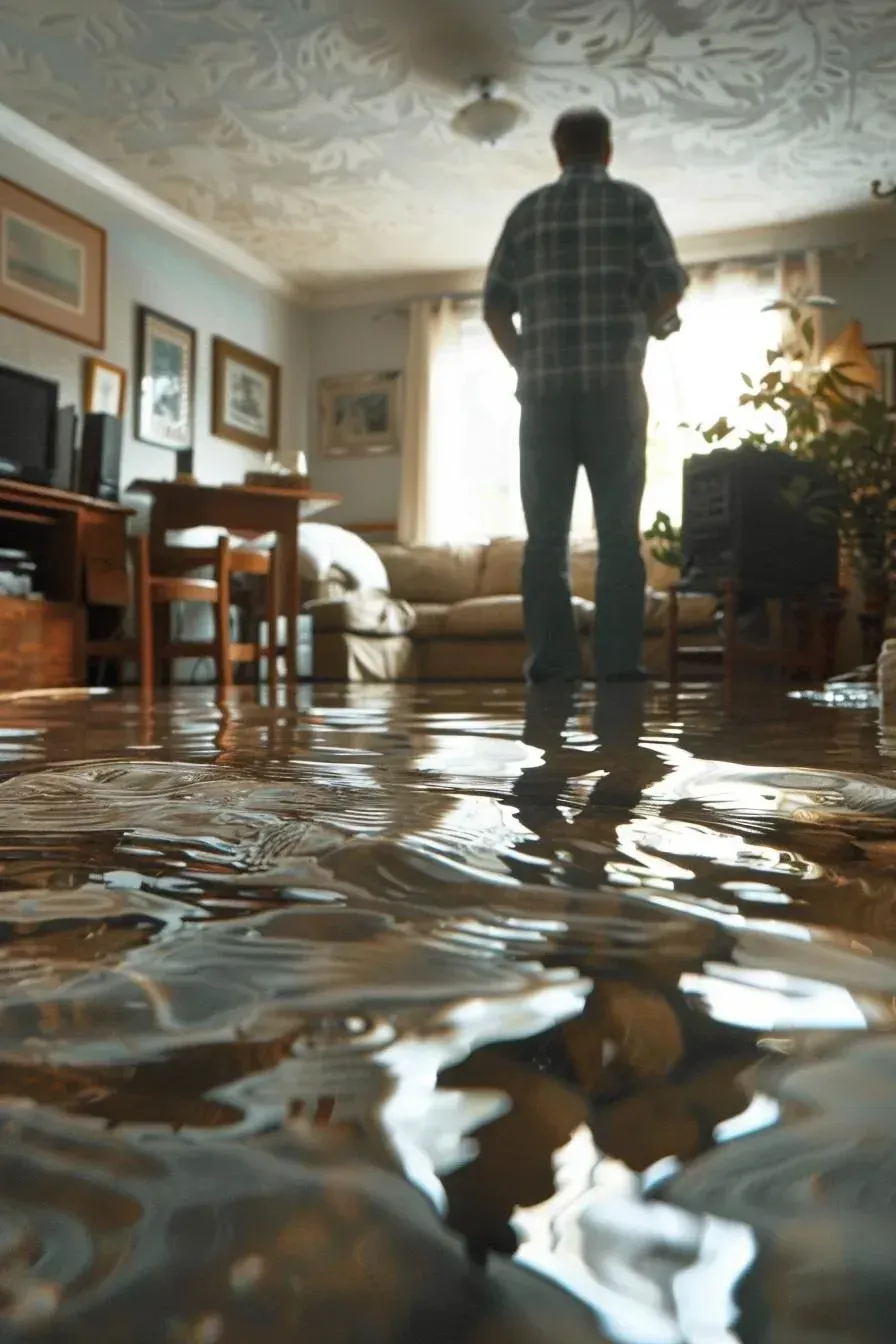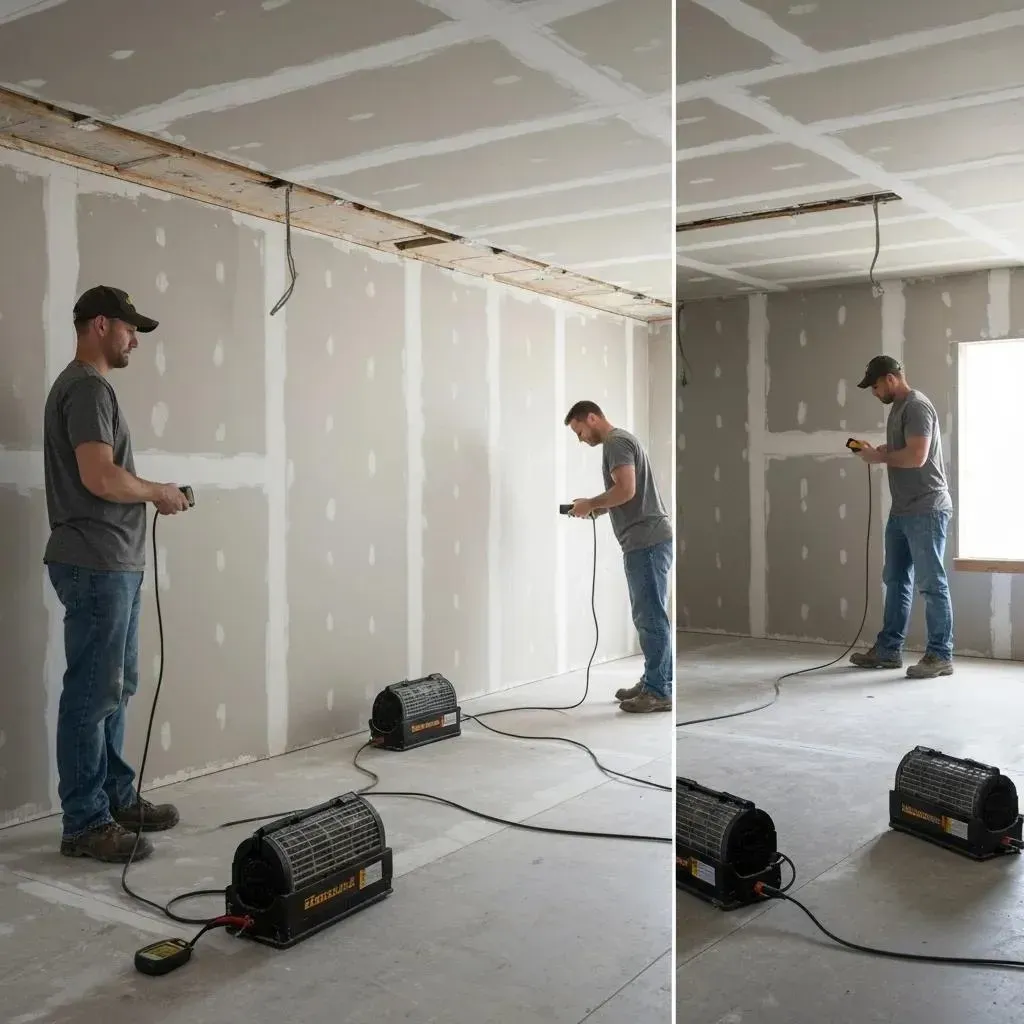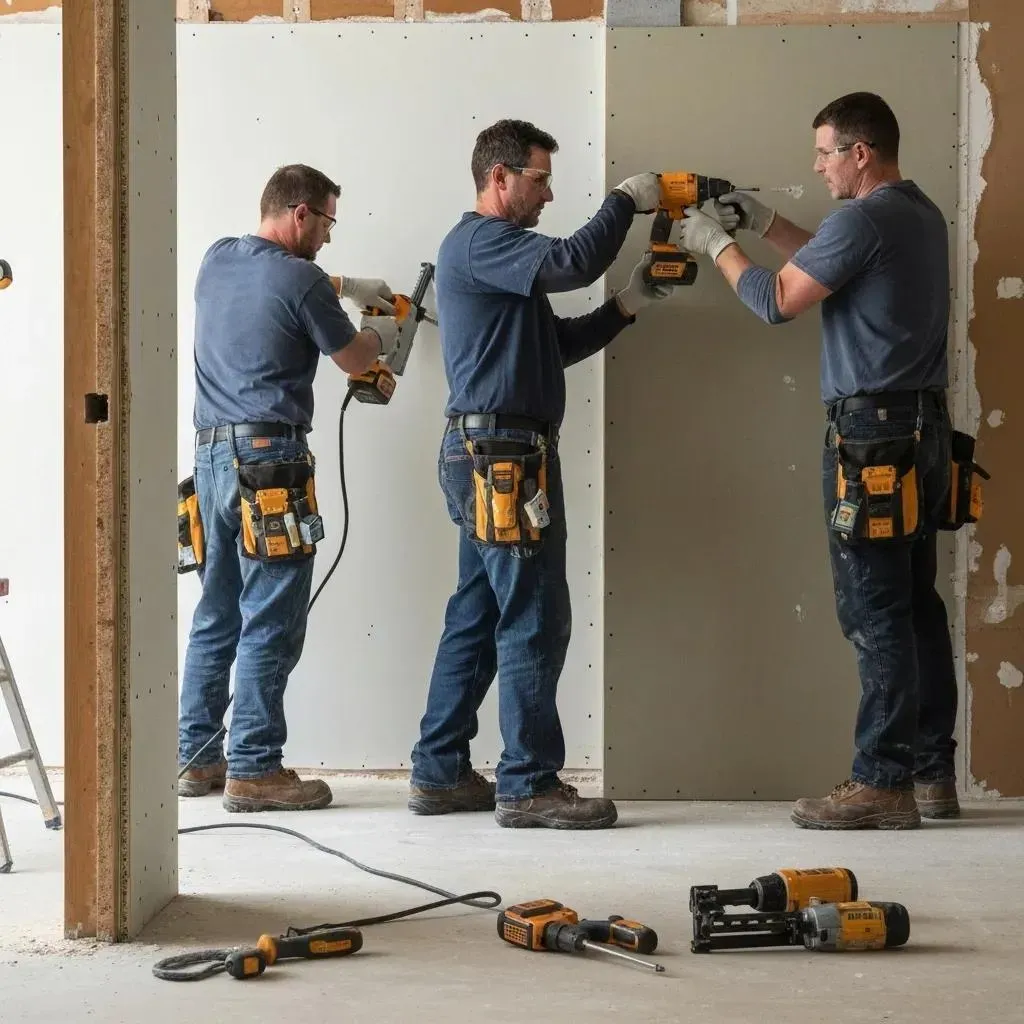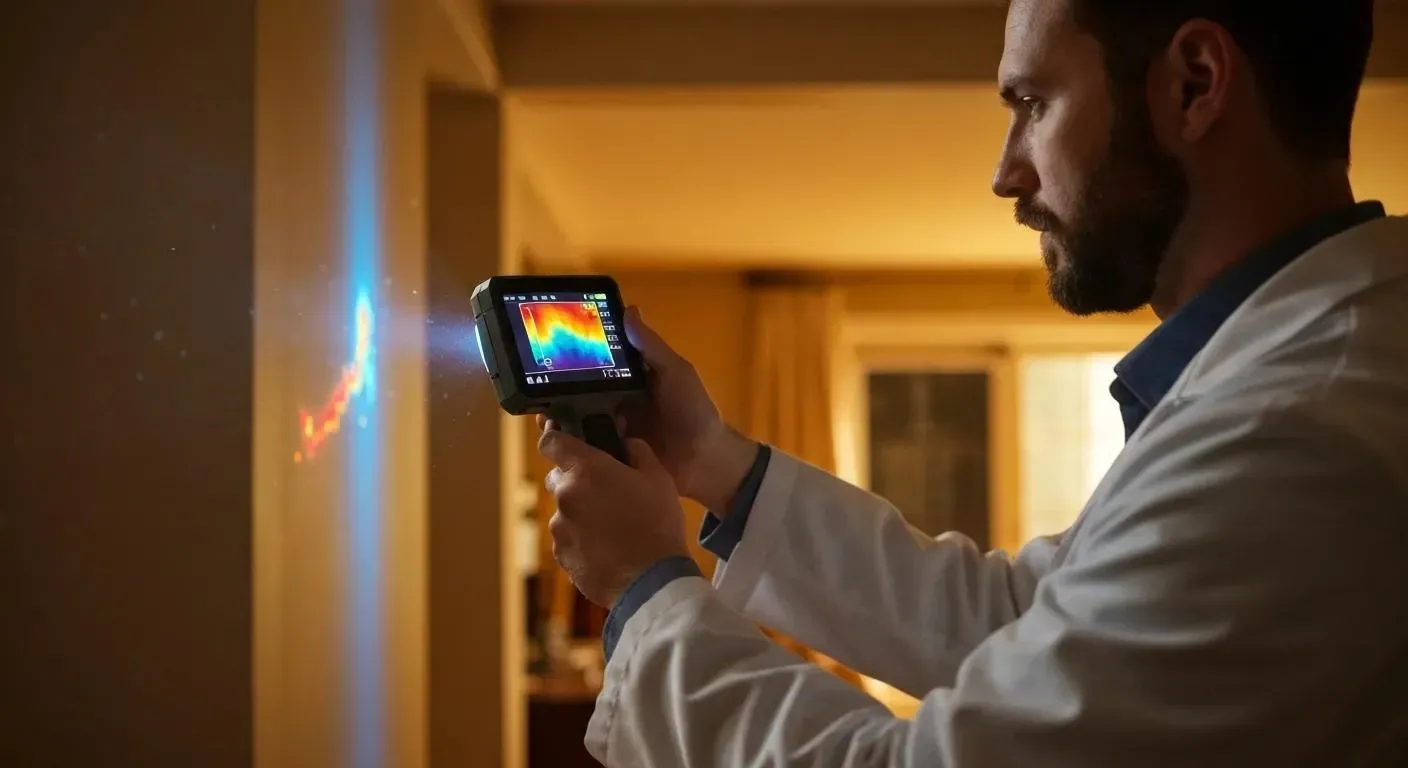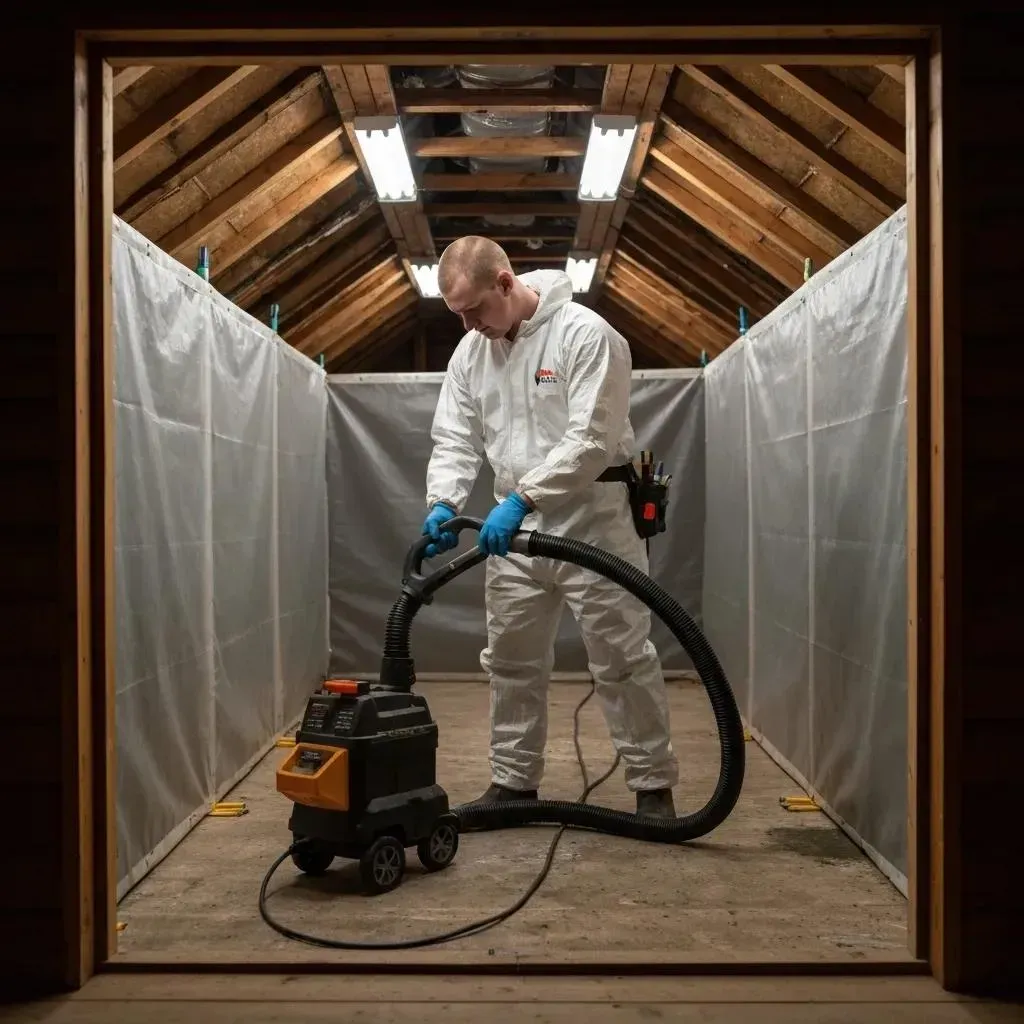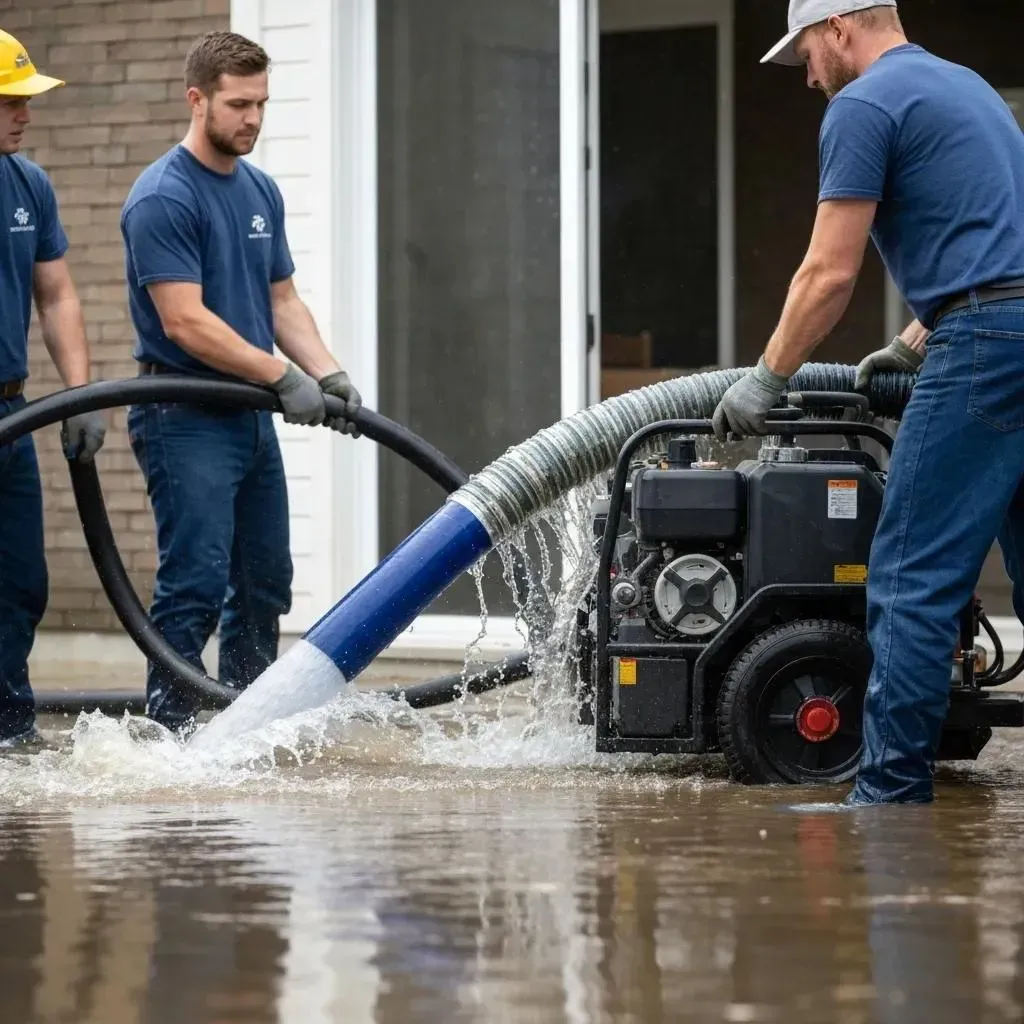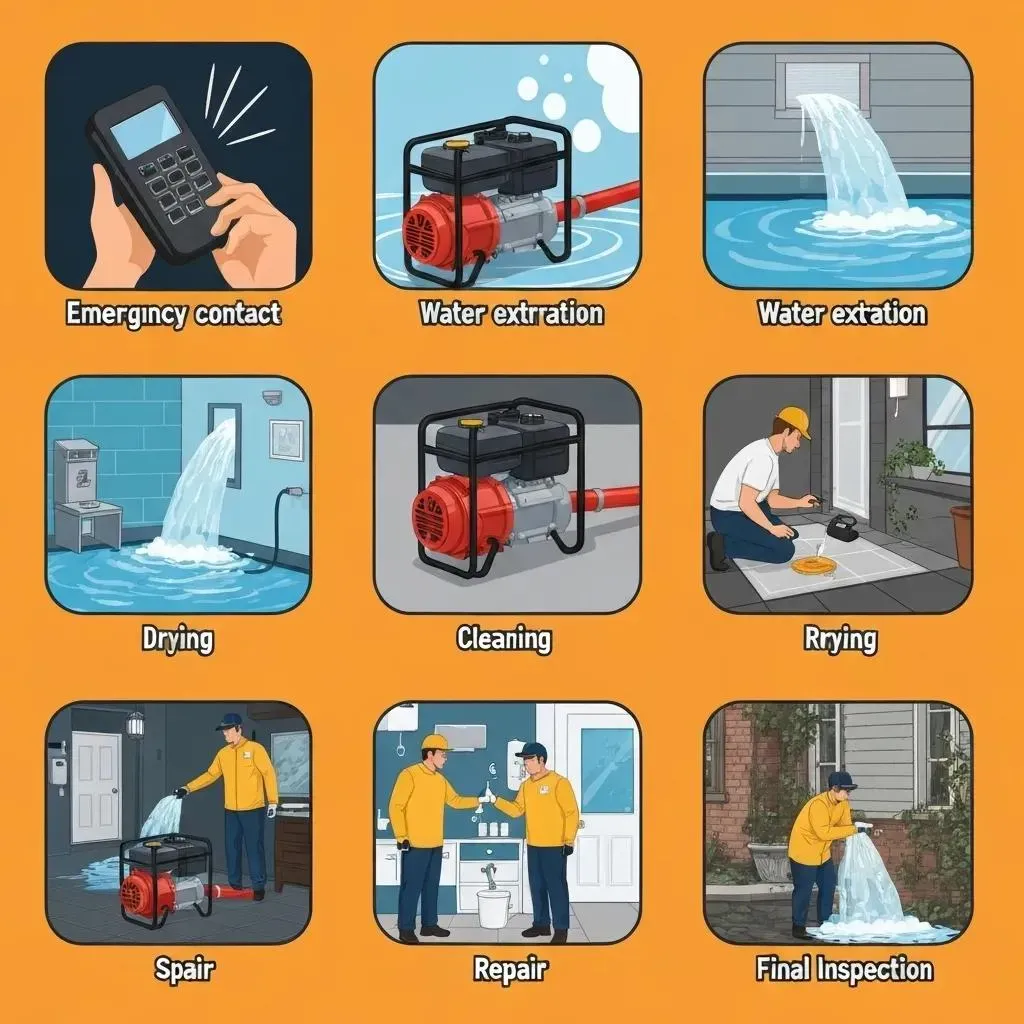Blog
Hidden Water Damage in Denver? Here Are the Signs You Need to Look For
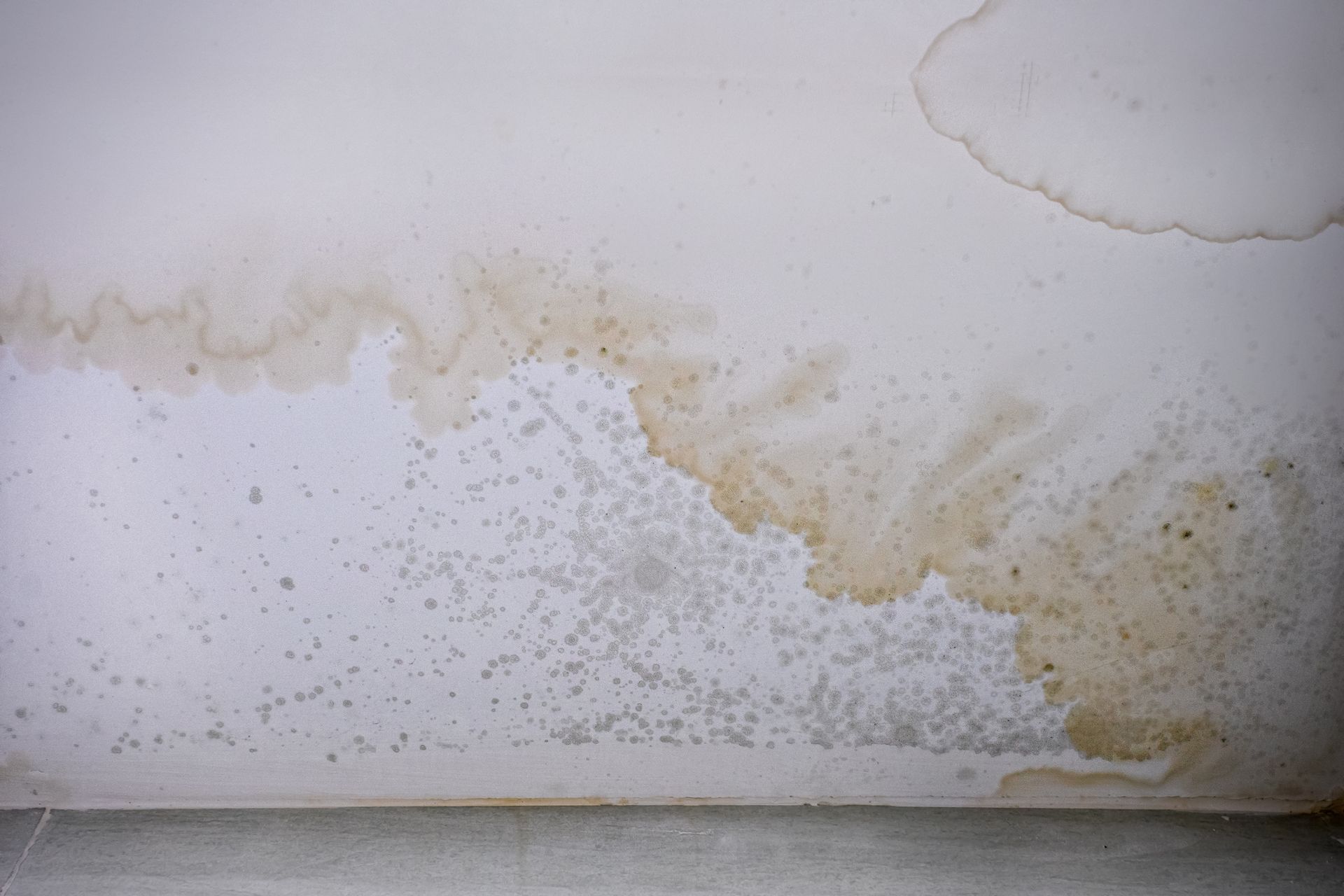
A homeowner in Denver recently called us after noticing a faint musty smell in their guest bedroom. Nothing looked wet, and the floors felt dry, so they figured it wasn’t a big deal. But after pulling back the baseboards, we discovered water damage from a small leak that had been active for weeks. Mold had started growing behind the wall, and the drywall was already soft and crumbling.
Unfortunately, this isn’t unusual. According to the Environmental Protection Agency (EPA), as much as 90% of water damage can go unnoticed until it’s too late. That’s because water doesn’t always announce itself with puddles or stains. It can hide behind walls, under floors, or inside ceilings—slowly causing expensive damage.
If you’re unsure what to look for, don’t worry. In this guide, we’ll explain the most common signs of hidden water damage that Denver homeowners need to catch early to avoid disaster.
Strange Odors That Won’t Go Away
Sometimes the first warning sign isn’t visual—it’s something you smell. Odors can be one of the earliest and most overlooked indicators that something’s wrong behind the scenes.
Why This Matters
Mold and mildew love to grow in damp, dark places. If you smell something musty or sour that doesn’t go away after cleaning, chances are it’s coming from hidden water damage. These odors are caused by mold spores or bacteria breaking down wet materials—and the longer they’re left alone, the worse they get. You might notice the smell is stronger after it rains or in rooms with poor ventilation.
What You Can Do
Don’t rely on air fresheners or cleaning sprays to fix the problem. Trust your nose. If the smell keeps coming back, schedule a professional inspection. Restoration pros can use moisture meters and infrared cameras to check for hidden water behind drywall, under floors, or in ceiling cavities.
Paint or Wallpaper That’s Bubbling or Peeling
Walls are a common hiding place for water damage, especially in older homes or during the winter months when pipes are more likely to burst. What might look like cosmetic wear could actually be a red flag.
What Causes This?
When water seeps into the drywall behind your paint or wallpaper, it creates pressure that forces the material to lift or blister. You might see bubbles, peeling, or cracking. Sometimes the area may also feel soft or damp to the touch. Even high indoor humidity can make the problem worse over time.
Why You Shouldn’t Ignore It
Many people repaint or re-paper over the damage, thinking it's just a surface issue. But if the underlying moisture problem isn’t addressed, mold can develop behind the wall, and the drywall can eventually crumble. Always investigate bubbling or peeling areas before making cosmetic repairs.
New or Spreading Stains on Ceilings or Walls
Stains are one of the more visible signs of trouble, especially on ceilings. If you’re seeing new spots or old stains that are getting bigger, that’s a clear sign that water is making its way through your structure.
What to Watch For
Water stains usually appear as yellowish, brown, or rusty rings. They can form in different shapes and often change over time, getting darker or spreading. Even a single small stain can signal a slow leak that’s been active for weeks or months. Pay attention to whether the area feels damp, or if it gets worse after rain or snowmelt.
Where to Check
Look closely at ceilings under bathrooms, laundry rooms, or rooflines. On walls, check around windows, pipes, and basement corners. These are common entry points for moisture due to plumbing, flashing issues, or structural weaknesses.
Warped Floors or Sagging Ceilings
When water gets deep into building materials, it starts to affect their structure. One of the most dangerous effects of hidden water damage is warping or sagging.
Signs to Spot
If your hardwood or laminate flooring is cupping, bowing, or feels uneven underfoot, you may have moisture in the subfloor. Similarly, if your ceiling appears to sag, bulge, or crack—especially after a roof leak or heavy snowfall—it could mean water has been pooling in the ceiling above. These changes often happen gradually but signal serious damage beneath the surface.
Why It’s Dangerous
Ignoring warped floors or sagging ceilings can lead to catastrophic failure. Water-damaged wood loses its strength and can collapse, while waterlogged drywall can fall suddenly. Structural repairs are far more expensive than early leak detection and drying.
Unexpected Spike in Water Bills
Sometimes the clearest sign of hidden water damage comes from your utility statement. If your water usage habits haven’t changed but your bill has jumped, something’s not right.
What to Do
Start by checking for visible leaks around toilets, faucets, and appliances. If everything looks fine, you may have a pipe leaking behind walls or under the slab foundation. Some leaks are slow but constant, making them difficult to detect without the right tools. Many homeowners go months without realizing a leak is occurring.
Save Money and Stress
Undetected leaks waste thousands of gallons of water and lead to serious structural damage. Calling in professionals to inspect your plumbing and perform leak detection can save you money and prevent costly home repairs in the long run.
Frequently Asked Questions
1. How long does it take for hidden water damage to cause mold?
Mold can begin growing within 24 to 48 hours after water exposure, especially in warm, damp environments.
2. Can I use a moisture meter to detect hidden water damage myself?
Yes, but consumer-grade meters are often less accurate than professional tools, so hiring a restoration expert is recommended for thorough inspection.
3. Will hidden water damage affect my home’s resale value?
Absolutely. Undisclosed or unresolved water damage can reduce home value and complicate the selling process.
4. Does homeowners insurance cover hidden water damage?
It depends on your policy. Sudden and accidental leaks are usually covered, but gradual damage or mold may not be unless you have specific coverage.
How Accountable Home Services Can Help You
At Accountable Home Services, we specialize in finding and fixing hidden water damage before it turns into a nightmare. Whether it’s a mystery smell, a suspicious stain, or a sudden jump in your water bill, we have the tools and experience to get to the source.
Here’s how we help homeowners in Denver, CO:
- Infrared thermal imaging and moisture mapping
- Certified water and mold damage inspections
- Full-service drying, sanitizing, and restoration
- Insurance-friendly documentation and estimates
- Honest answers and fast service you can trust
Don’t wait until minor damage becomes a major disaster.
Call Accountable Home Services today at (720) 620-3272 or visit us at 1347 E 73rd Ave, Denver, CO 80229. We’ll help you uncover what’s hiding behind your walls—and fix it right the first time.

